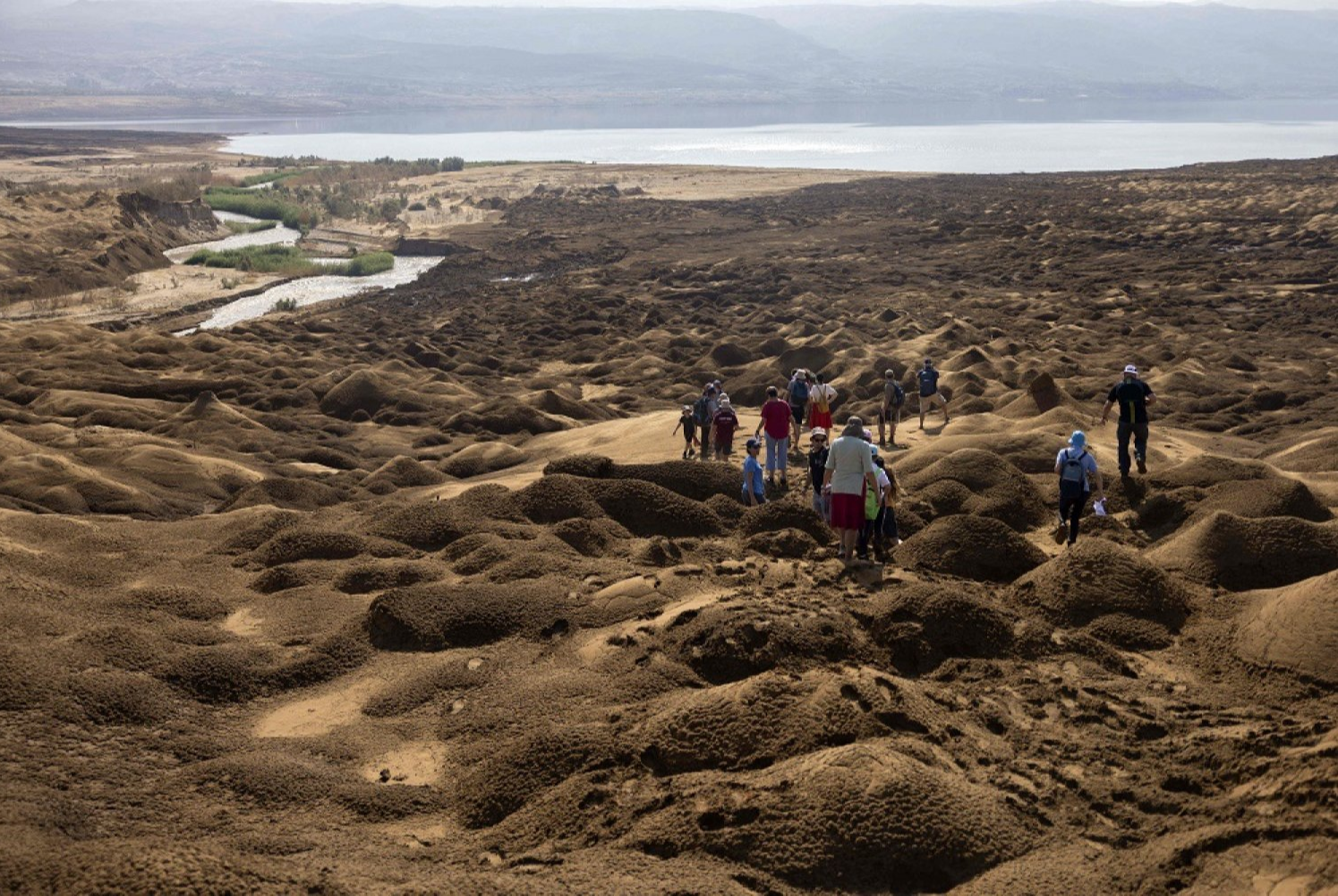
A group of Israeli hikers walk on the hills near the Jordan River where the steam pours into the Dead Sea, near the West Bank city of Jericho, on October 14, 2022. (AFP)
Tel Aviv, May 17 (RHC)-- The Israeli army used chemical and biological weapons during the 1948 war, including poisoning water wells in several Palestinian towns, original documents stored in the Israel State Archive, as well as other archives revealed.
While once regarded as only a rumor, newfound documents reveal that Israeli troops tried to poison wells and contaminate the drinking water of the Palestinian community in 1948 under Israel's first Prime Minister David Ben-Gurion (David Grün).
Operation "Cast Thy Bread" was a plan to poison wells with bacteria in Arab neighborhoods and even some Jewish pockets to evacuate several locations and expand the state-in-the-making.
The Israeli news outlet Haaretz published an extensive article about the documents and the involvement of high-ranking officials such as the prime minister and military generals.
Though partially exposed decades ago, the extent of the operation as well as the involvement of high-ranking officials remained in the dark, until now.
The documents showed that Israeli political and military leaders and some scholars were partners in the decision, and had even planned to poison the waters in Cairo and Beirut, but changed their mind at the last minute.
Haaretz reporter Ofer Aderet wrote that the poisoning was partially exposed decades ago by Arab sources when rumors and oral testimonies were reported in newspapers and books about an attempt by the army in 1948 to poison wells in Acre and Gaza by adding bacteria to the drinking water.
However, the details of Israel’s secret use of biological weapons and poison against Palestinians during the 1948 war was revealed in a recent article by historians Benny Morris and Benjamin Kedar.
Published by Middle Eastern Studies, Morris and Kedar’s research is a rarity because it was researched and published against the wishes of the Israeli security establishment, which has tried for years to block any embarrassing historical documents that expose war crimes against Arabs, such as murdering prisoners, ethnic cleansing and destroying villages, Haaretz wrote.
The poisoning targeted dozens of Palestinian water wells, including the Acre and the Galilee village of Ilabun in the north.
Aderet wrote that the plan was to poison wells in abandoned Arab villages, as well as in Jewish locales that were due to be evacuated by the state-in-the-making. The goal wasn’t mass poisoning, but rather an act of deterrence that would prevent Palestinians from returning to areas where the water is poisonous.
Morris and Kedar said that the substance used in the poisoning was causing mass infections of dysentery and typhoid, adding that such diseases spread in Acre.
The poisoning started on April 1, 1948 with the knowledge and supervision of several officials, including then Prime Minister David Ben-Gurion, the documents revealed.
The two researchers also said some Israelis objected against the poisoning, most notably archaeologist Shmarya Gutman, who in 1988 testimonies, said he vehemently opposed the operation on moral grounds and warned that poisoning the water could also harm Jews.
As for Beirut and Cairo, Morris and Kedar revealed that the plan aimed to poison their waters in retaliation against the Arab armies that tried to invade the country to expel the Jews. However, the Israeli operatives who would be tasked with traveling to both capitals received sudden orders to stop the operation.
Apparently, the operation was exposed in May 1948 when Egyptian authorities arrested in Gaza two Israeli soldiers, posing as Arabs, with tubes containing typhoid germs in their possession.

